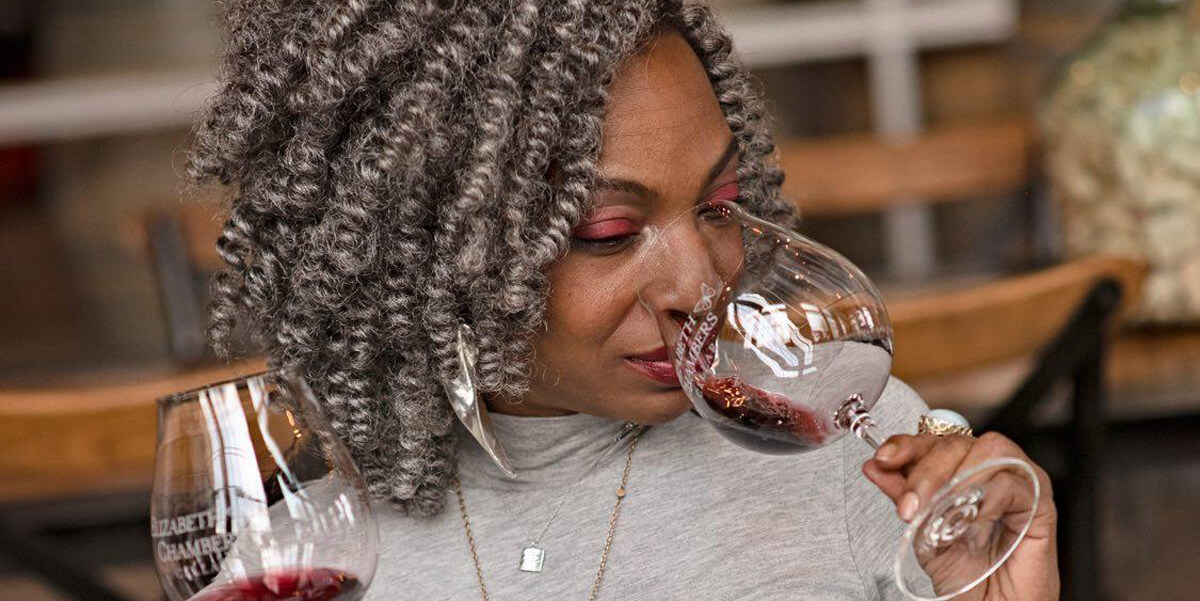Memories of being a student at Colorado Academy have been coming up a lot lately for Maia Parish. The Denver sommelier is studying to become a Certified Specialist of Wine with the Society of Wine Educators. And she says the rigor of the certification material reminds her of academics at CA.
“I’ve been through a bachelor’s and nearly all of a master’s program, and they weren’t as academically difficult as CA,” says Parish, who earned degrees in communications and organizational development and now holds a Level Two certification (and sat for the Level Three) with the Wine & Spirit Education Trust. “CA gave me a foundation for education and learning. Some of the best education I’ve had to this day was [at CA].”
The “mompreneur,” as she calls herself, is founder and owner of The Wine Suite events company, the Tales of a Wine Mistress live blog, and Parish Media LLC consulting company. She plans some day to open a fully accredited wine school in Denver, which will include event and retail space and prioritize women and minority students.
A Black woman, Parish is succeeding in the “white male-dominated world” of wine—but she has some stories to tell about that.
What it’s like being a Black female sommelier
 Parish has watched people’s heads cock in surprise when they hear she’s a sommelier. She has poured wine for customers who called her “girl.” She has seen wine managers and distributors ignore or dismiss her and felt white women grab her hair at wine tasting events. She has dealt with sexual harassment, more than once.
Parish has watched people’s heads cock in surprise when they hear she’s a sommelier. She has poured wine for customers who called her “girl.” She has seen wine managers and distributors ignore or dismiss her and felt white women grab her hair at wine tasting events. She has dealt with sexual harassment, more than once.
“Sometimes I don’t know if it’s because I’m a Black woman or a woman,” she says.
It’s frustrating: the racism, the sexism, the belief that Black people don’t drink good wine, the disregard for the enormous spending power of the African American community. But Parish won’t let any of that keep her from her two true loves: wine and food.
“No matter what’s going on in the world, I can eat and drink and find joy and happiness, and I love to share that with people,” she says. “Wine and food are the great equalizers. We’re living in a very tumultuous time, where people can’t even have conversations with each other. But no matter where you’re at or who you are, even if you don’t agree, y’all can eat and have a drink.”
Parish appreciates that conversations about racism and racial justice have increased since the killing of George Floyd by police in Minneapolis. She believes that the wine industry, and our nation, need more of these conversations. And she believes it is time to open the wine industry up and find other voices to represent it.
As for dealing with workplace injustices?
“I don’t have time to figure out if someone’s comfortable if I’m in the room or not,” she says. “I’m at the table now, and I’m bringing all of me.”
How the wine industry is doing in the pandemic
In short, says Parish, “Online wine sales are popping, and virtual events are in full swing!”
Because such a large portion of wine sales comes from restaurants, wine producers got worried when many restaurants closed down to prevent the spread of the COVID-19 virus. Online sales have helped financially, but Parish says much more support is needed. She says online wine sales were up by more than 37 percent in June, as people consumed more alcohol during the pandemic.
She’s using her communications and media skills to take advantage of the business opportunities resulting from the pandemic. She promotes her own products and services through weekly livestream sessions and is offering consulting services for start-up companies in product promotion, social media strategy, and media safety. And while restaurants may be closing, corporations still have event budgets—a situation wine sellers can capitalize on by offering virtual tasting events.
“People are drinking,” she says. “On Friday at 5 p.m., when this city shuts down, my inbox is steady. And I don’t think virtual tastings are going to disappear after the pandemic.”
She does hope that, after the pandemic, the restaurant and hospitality industry will rebuild, with compensation and benefits that better support and protect their workers, who are disproportionately women and people of color. For example, she notes, the roots of the tipping system are racist.
“Long ago, Black men worked as porters in restaurants, but people didn’t want to hire them and pay them, so they were paid in tips. And we’re still trying to support this system in the 21st century,” she says. “Maybe when the dust settles, we will dismantle old foundations and build stronger, more comprehensive foundations that can support people better.”
What she took away from CA
As Parish built her career as a sommelier, she benefitted from many programs like the Battonage Women in Wine Forum mentorship program. Now, she gives back to that program. She was selected to be a mentor and is a volunteer.
She credits CA with instilling in her the desire to give back. She remembers doing community service projects as part of the Interim program, along with her siblings, Shyra and Don Parish, who also attended CA, and her brother Ramon, who graduated from CA in 1996.
“We helped at nursing homes, worked with kids, picked up trash…. I learned the value of service and helping people through CA,” she says. “That stayed with me, and it fills a part of my life now.”
She has given back to CA by hosting alumni wine tastings at Alumni Back-to-School Night, something she loves doing. She has fond memories of the beautiful campus, the extremely smart teachers, and the nurturing learning environment she experienced there.
“I have a special place in my heart for the school,” she says. “I’m so happy that I’m an alumna and a part of that community. I hope to send my daughter to CA Middle School!”
